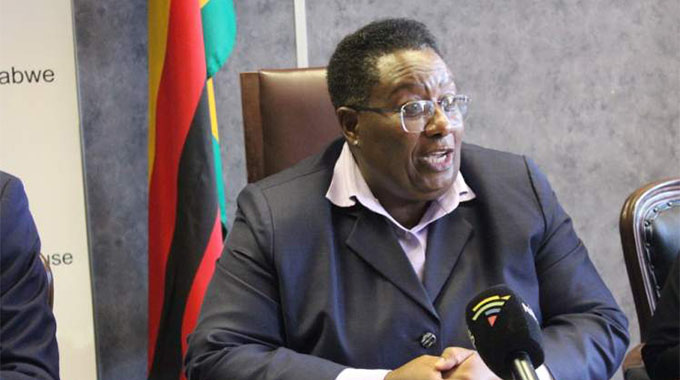Zacc says recovery of looted money and assets no stroll in the park
By Nyashadzashe Ndoro
The Zimbabwe Anti-Corruption Commission (Zacc) says it is not possible to quickly recover the money or assets lost through illicit financial transactions by citizens of this country, adding investigations into these criminal activities are complex and can take several years to accomplish.

Addressing an asset-recovery training workshop in Harare on Tuesday, Zacc chairperson Justice Loice Matanda-Moyo said illicit financial flows were among some of the greatest threats that Zimbabwe is currently facing.
Matanda-Moyo revealed that Zimbabwe had lost in excess of US$3 billion to illicit financial movements, with some through tax evasion, smuggling, corruption, fraud, drug trafficking and money laundering.
“The Financial Intelligence Unit estimated that Zimbabwe lost over US$3 billion to illicit financial flows through proceeds of crimes, involving tax evasion, smuggling, corruption, fraud, drug trafficking and money laundering.
“Africa loses at least US$50 billion a year.
“Illicit financial flows involve money moving illegally across borders, as such it is a daunting task following money trails through different jurisdictions.
“The investigations are generally complex, and it takes years to recover proceeds of crime.
“I am advised by the experts that it took Nigeria about 15 years to identify, freeze and repatriate an estimated US$1,2 billion proceeds of crime of the family and associates of General Sani Abacha, the former Nigerian President.
“This is just one of the few examples. It requires dedication on the part of the investigators and prosecutors as well as stakeholders,” Matanda-Moyo said.
The Zacc chairperson also added that the commission’s Strategic Plan department department had allocated 60 percent of its resources for the period 2019-2024 to investigation and asset recovery and urged her officers to be courageous in the fight.
“It takes years and dedication for one to be an expert in asset recovery. As the commission, we are looking forward to building teams that are sophisticated and technically sound to conduct thorough investigations, asset-tracking and recovery.
“In addition, we intend to move away from mediocre investigation practices. Corruption is evolving daily and in order to be prepared, there is need for continuous training in the new forms of corruption. It is time for a change in the way that we conduct ourselves and our investigations,” Matanda-Moyo said.
She also said there was need for legislators to be proactive and at least enact a law that frequently accounts for properties in the country.
“For example, in Britain they have enacted the Unexplained Wealth Orders Act and our counterpart organisation in London can actually call upon persons, the British and even those foreigners to explain on the properties that they have in the UK.
“So once that power is taken away from ourselves, it means we can no longer interact with the other agencies in order to make use of that particular Act,” Matanda-Moyo said.
The workshop which ends on Wednesday, is being sponsored by the World Bank and the United Nations Office on Drugs and Crime (UNODC). Nehanda Radio






